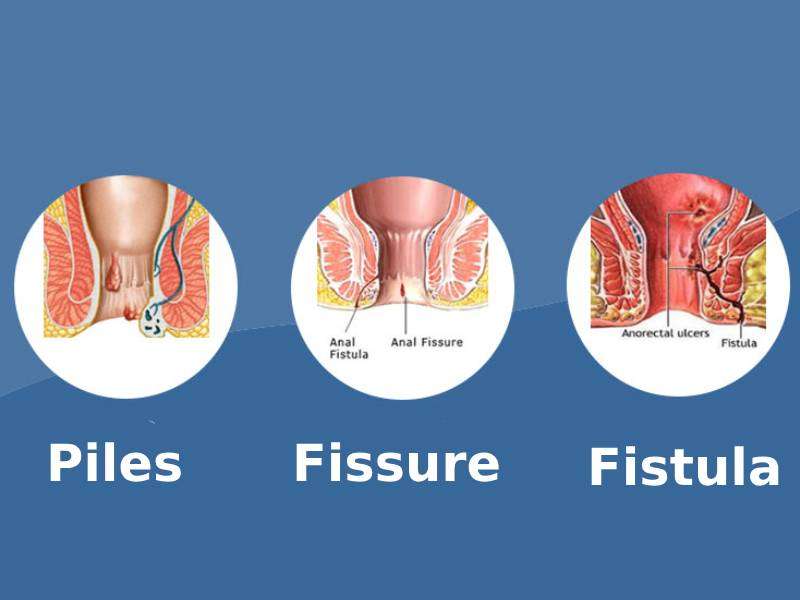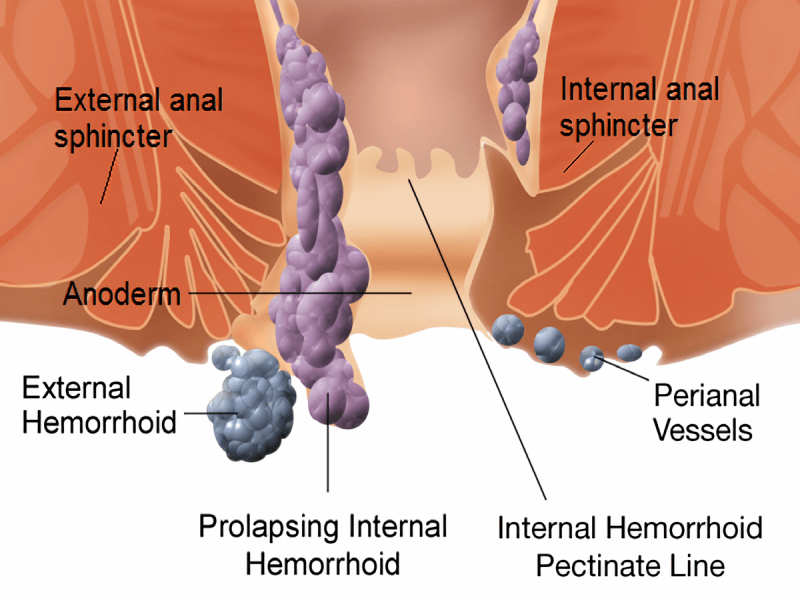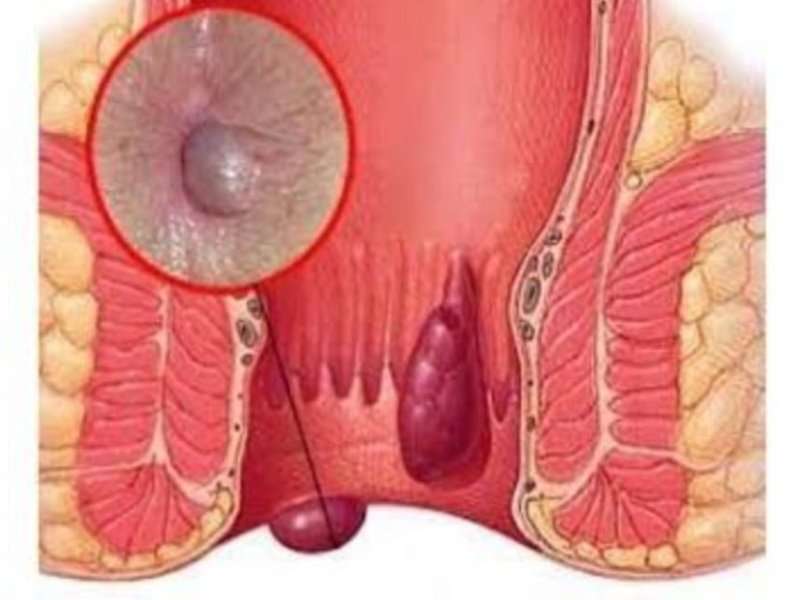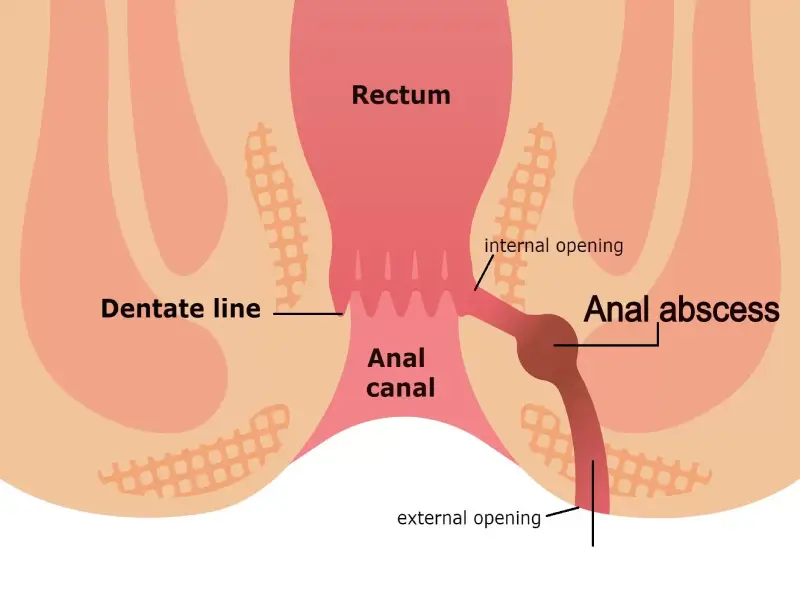
Piles, Fissures, and Fistulas are common conditions that affect the lower digestive tract and can cause significant discomfort and distress. At Dhanvantari Clinic, we offer expert care and treatment for these conditions under the guidance of our experienced doctors, Dr. Soni A.K., General Physician & Surgeon, and Dr. Anish Kumar, Family Physician. With a compassionate approach and personalized treatment plans, we aim to provide relief from these painful conditions and improve your overall quality of life.
Why Piles, Fissures, Fistulas Require Treatment?
While these conditions are common, they should not be ignored. Untreated piles, fissures, and fistulas can lead to complications such as chronic pain, persistent bleeding, infection, and difficulty with daily activities.
Proper treatment is crucial to provide relief, prevent further complications, and promote healing. At Dhanvantari Clinic, we take a comprehensive approach to diagnose and treat these conditions, offering both medical and surgical options based on the severity of the condition.
Understanding Piles, Fissures, and Fistulas:

Piles (Hemorrhoids):
Piles, also known as hemorrhoids, are swollen veins in the rectum or anus that cause pain, itching, bleeding, and discomfort during bowel movements. There are two types of piles:
Internal Hemorrhoids: Located inside the rectum, these may not be visible but can cause bleeding during bowel movements.
External Hemorrhoids: Located under the skin around the anus, these can cause swelling, itching, and pain.

Anal Fissures:
An anal fissure is a small tear or crack in the skin around the anus, typically caused by passing large or hard stools. This condition can result in sharp pain, especially during or after bowel movements. In some cases, fissures can lead to bleeding, itching, and inflammation.

Anal Fistulas:
An anal fistula is an abnormal tunnel that forms between the anus and the skin around the anus. It usually occurs after an abscess, which is a painful swelling due to an infected gland in the anal region. Fistulas can cause pain, drainage of pus, and discomfort during bowel movements. They are often associated with chronic conditions like Crohn’s disease or previous infections.
Symptoms of Piles, Fissures, and Fistulas:
The symptoms of piles, fissures, and fistulas can vary depending on the condition, but common signs include:
- Piles: Pain or discomfort around the anus, swelling or lumps near the anus, bleeding during bowel movements, itching around the anus, and mucus discharge.
- Anal Fissures: Sharp pain during and after bowel movements, itching, swelling around the anus, and visible tears in the skin around the anus.
- Anal Fistulas: Pain around the anus, pus or blood discharge from the opening near the anus, swelling, redness around the anus, & pain during bowel movements.
If you experience any of these symptoms, it’s important to seek medical advice promptly. Dr. Soni A.K. and Dr. Anish Kumar are experts in diagnosing these conditions and offering effective treatment options.
Our Approach to Piles, Fissure, and Fistula Treatment:
At Dhanvantari Clinic, Dr. Soni A.K. and Dr. Anish Kumar work together to provide personalized and effective treatment for piles, fissures, and fistulas. Depending on the severity of the condition, we offer a combination of lifestyle changes, medications, minimally invasive treatments, and surgical procedures.
Diagnosis:
Accurate diagnosis is essential for effective treatment. The doctors begin by conducting a thorough examination, including a physical exam and digital rectal exam to assess the severity of the condition. In some cases, additional tests like an anoscopy (a procedure where a small tube is inserted into the anus to view the rectal area) may be required to make a precise diagnosis.
Conservative Treatment:
For mild cases, conservative treatments may be sufficient to manage the condition and relieve symptoms:
- Dietary Changes: A high-fiber diet is recommended to soften stools and prevent straining during bowel movements. Our doctors will guide you on including fiber-rich foods and staying hydrated to help prevent constipation.
- Topical Ointments and Creams: Over-the-counter or prescription creams and ointments can help reduce inflammation, soothe itching, and relieve pain caused by piles or fissures.
- Pain Relief: For anal fissures and piles, pain relievers such as sitz baths and over-the-counter pain medications can provide relief.
- Stool Softeners: To reduce the strain during bowel movements, stool softeners may be prescribed to make it easier to pass stools.
Minimally Invasive Procedures:
If conservative treatments are not effective, minimally invasive procedures may be recommended. These options offer faster recovery times and less pain compared to traditional surgery:
- Rubber Band Ligation: A procedure where a small rubber band is placed around the base of an internal hemorrhoid to cut off its blood supply. This causes the hemorrhoid to shrink and fall off within a few days.
- Infrared Coagulation (IRC): A technique that uses infrared light to shrink hemorrhoids. This is typically used for small to medium-sized hemorrhoids.
- Sclerotherapy: A solution is injected into the hemorrhoid to shrink it. This is often used for small internal hemorrhoids.
Surgical Treatments:
In severe or chronic cases, surgical intervention may be necessary:
- Hemorrhoidectomy: Surgical removal of large or prolapsed hemorrhoids, especially if they are not responsive to other treatments. This is performed under anesthesia and may require a short hospital stay.
- Fissurectomy: A surgical procedure to remove the anal fissure and promote healing. This procedure is often used when conservative treatments fail.
- Fistulotomy: This is the surgical procedure to treat anal fistulas. The fistula tract is opened to allow it to heal from the inside out. In complex cases, advanced techniques like LIFT (Ligation of Intersphincteric Fistula Tract) may be used to minimize damage to the sphincter muscles and preserve bowel control.
Post-Treatment Care:
After treatment, Dr. Soni A.K. and Dr. Anish Kumar provide detailed post-care instructions to ensure smooth recovery. This may include recommendations for diet, pain management, and follow-up visits to monitor healing progress. Proper care and lifestyle modifications are crucial for preventing recurrence of piles, fissures, or fistulas.
Preventive Measures:
Once treated, it’s important to make certain lifestyle changes to prevent future issues. These include maintaining a healthy diet, practicing good toilet habits, avoiding straining during bowel movements, staying physically active, and managing stress.
Why Choose Dhanvantari Clinic for Piles, Fissure, and Fistula Treatment?
Expert Care:
Both Dr. Soni A.K. and Dr. Anish Kumar have years of experience in treating piles, fissures, and fistulas, ensuring you receive the best possible care. Their personalized approach focuses on providing long-term relief and improving your overall well-being.
Comprehensive Treatment:
Whether you need lifestyle adjustments, conservative treatment, minimally invasive procedures, or surgery, we provide a wide range of options to suit your needs.
Minimally Invasive Solutions:
Our clinic specializes in the latest, minimally invasive techniques, ensuring that you have faster recovery and minimal discomfort.
Holistic Approach:
We believe in treating the root cause of the problem, not just the symptoms. Our holistic approach ensures a full recovery and reduces the risk of recurrence.
Get Relief from Piles, Fissures, and Fistulas Today:
If you are experiencing discomfort from piles, fissures, or fistulas, don’t wait for the symptoms to worsen. Dhanvantari Clinic offers expert diagnosis and treatment options to help you find lasting relief. Contact us today to schedule an appointment with Dr. Soni A.K. and Dr. Anish Kumar, and take the first step towards a pain-free life.
